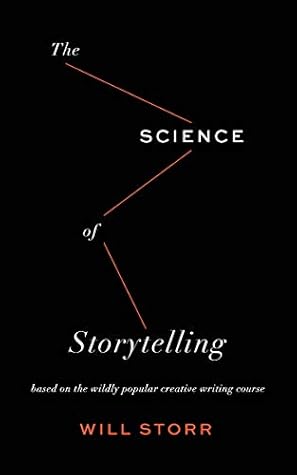More on this book
Community
Kindle Notes & Highlights
Becoming better at telling stories is simply a matter of peering inwards, at the mind itself, and asking how it does it.
I wanted to find out how intelligent people end up believing crazy things. The answer I found was that, if we’re psychologically healthy, our brain makes us feel as if we’re the moral heroes at the centre of the unfolding plots of our lives. Any ‘facts’ it comes across tend to be subordinate to that story. If these ‘facts’ flatter our heroic sense of ourselves, we’re likely to credulously accept them, no matter how smart we think we are. If they don’t, our minds will tend to find some crafty way of rejecting them.
Joseph Campbell’s ‘Monomyth’,
the phases of a hero’s journey from their initial ‘call to adventure’ onwards.
Many stories begin with a moment of unexpected change.
Change is endlessly fascinating to brains. ‘Almost all perception is based on the detection of change’ says
Humans have an extraordinary thirst for knowledge. Storytellers excite these instincts by creating worlds but stopping short of telling readers everything about them.
Brains,
seem to become spontaneously curious when presented with an ‘information set’ they realise is incomplete.
The more context we learn about a mystery, the more anxious we become to solve it.
The world we experience as ‘out there’ is actually a reconstruction of reality that is built inside our heads. It’s an act of creation by the storytelling brain.
This is how it works. You walk into a room. Your brain predicts what the scene should look and sound and feel like, then it generates a hallucination based on these predictions. It’s this hallucination that you experience as the world around you. It’s this hallucination you exist at the centre of, every minute of every day. You’ll never experience actual reality because you have no direct access to it. ‘Consider that whole beautiful world around you, with all its colours and sounds and smells and textures,’ writes the neuroscientist and fiction writer Professor David Eagleman. ‘Your brain is
...more
Brains take information from the outside world – in whatever form they can – and turn it into models.
Because writers are, in effect, generating neural movies in the minds of their readers, they should privilege word order that’s filmic, imagining how their reader’s neural camera will alight upon each component of a sentence.
‘instead of telling us a thing was “terrible”, describe it so that we’ll be terrified. Don’t say it was “delightful”; make us say “delightful” when we’ve read the description.’
For modern humans, controlling the world means controlling other people, and that means understanding them. We’re wired to be fascinated by others and get valuable information from their faces.
Human obsession with faces is so fierce we see them almost anywhere: in fire; in clouds; down spooky corridors; in toast.


